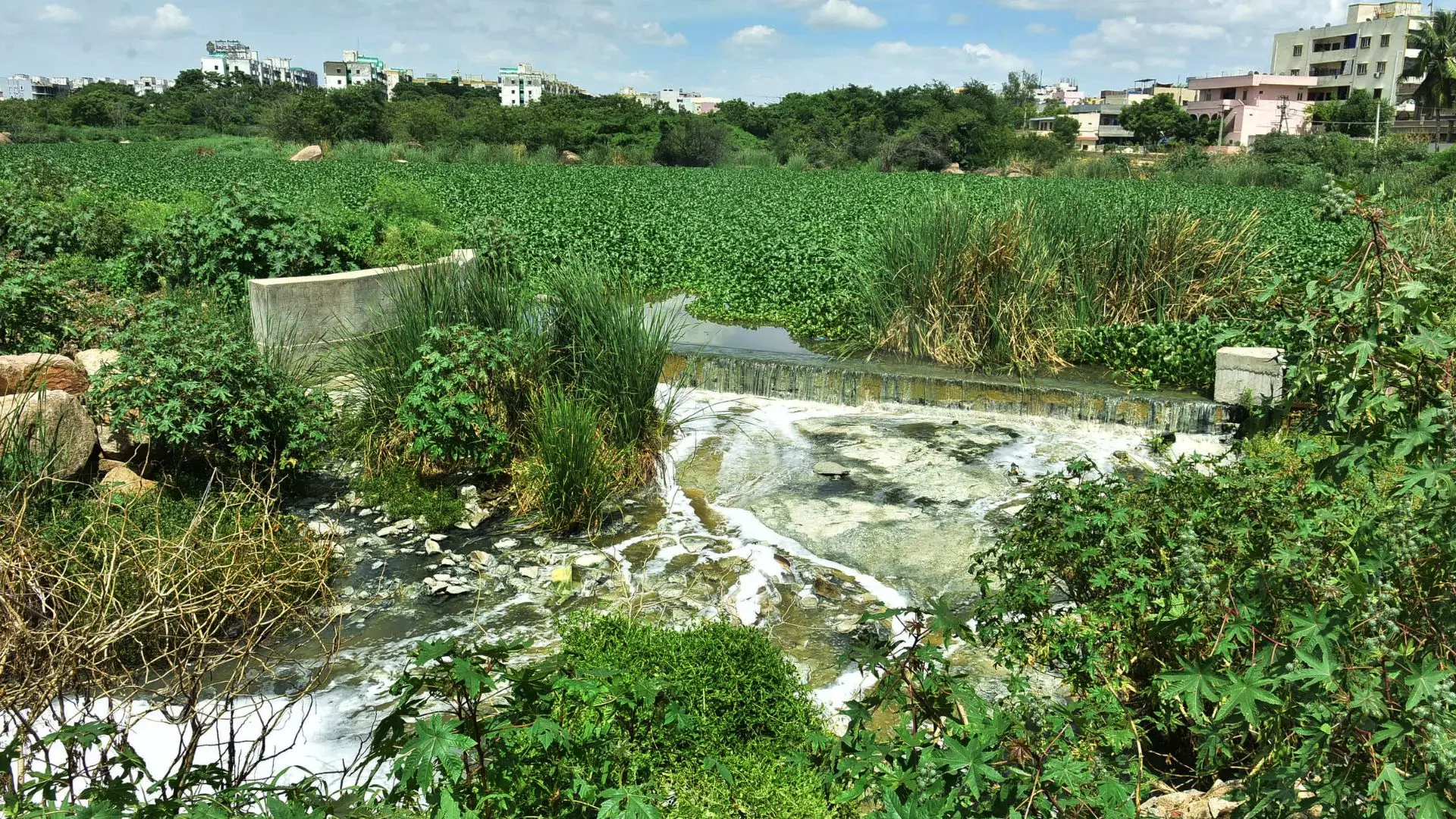Hyderabad Water Crisis: TGPCB Criticised for Inaction Against Polluting Industries
Telangana Pollution Control Board under fire as Hyderabad's water bodies suffer from pollution, causing ecological damage and health risks

Hyderabad: The Telangana Pollution Control Board (TGPCB) has been very negligent when it to taking stern action against industries responsible for leaving the water bodies in Hyderabad in a vulnerable condition. While the board is responsible for imposing penalties on industries that have not been following conventional environmental norms, it has not been actively involved in imposing any such penalties.
The Telangana High Court had on March 19 expressed dismay at the grim condition of 13 lakes across the state after a detailed report of the same was presented by a committee of two advocates, who prepared the report.
During the report’s hearing in the High Court, it was also noted that some people had to use contaminated water to grow vegetables as the Nalla Cheruvu in Uppal was totally polluted.
The loss of habitat due to polluted water bodies across the state was a ‘matter of concern’ for the bench, which had then ordered immediate action. However, the water bodies still remain polluted.
Recently, around 10 tonnes of dead fish were found floating in Chitkul tank near Patancheru. PCB officials told Deccan Chronicle, “We have analysed four such sources of pollution, a hospital, and three industries around that tank. None of them have caused this.”
The officials also said that a report has been prepared. However, no such report was found and several fish are still being found dead in various tanks around the city.
At that time, the locals had blamed release of effluents into the water that led to the organisms living in the water bodies dying. Locals had also alleged that the quantity of dead fish in the water body kept rising every time they went fishing.
In 2023, thousands of dead fish were found floating on Durgam Cheruvu lake as well, leading to the High Court’s intervention. However, the TSPCB has been lethargic as regards imposing penalties on industries releasing effluents without any accountability.
To avoid more pollutants being disposed of in such a manner and to save more lives, the industries should be directed to establish effluent treatment plants (ETPs). These ETPs purify the wastewater or effluents before they are released into the water bodies. The ETPs consist of primary, secondary and tertiary units.
In the primary unit, with the process of screening and sedimentation, large solid particles would be eliminated from the effluents. The secondary unit primarily focuses on reducing the effluent’s biochemical oxygen demand (BOD) and chemical oxygen demand (COD). These low BOD levels would ensure water is clean and safe and when the COD is reduced, the harmful impact of such water is eliminated, ensuring safety of aquatic life.
In the tertiary unit, the final stage, the effluents are further polished, finally making sure that when released, they do not cause any harm.

